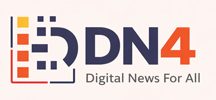When 25-year-old Fátima Bosch Fernández was crowned Miss Universe 2025 on November 21, 2025, in Bangkok, Thailand, she didn’t just secure Mexico’s fourth crown—she ignited a powerful conversation about neurodiversity that’s reshaping workplaces across America and beyond.
The fashion designer from Tabasco, Mexico, who has openly shared her journey with dyslexia, ADHD, and another neurodevelopmental challenge, represents a watershed moment for the estimated 70 million Americans living with learning and thinking differences.
From Bullied Schoolgirl to Global Advocate: Fátima’s Powerful Story
Diagnosed at age six with multiple neurodevelopmental conditions, Fátima faced relentless bullying during her education. Classmates mocked her reading struggles and difficulty maintaining focus, transforming her school years into an exhausting battle against stigma and misunderstanding.
“They made me feel like I was less than,” she shared following her coronation, recalling how she would retreat to her room, sketching fashion designs as a quiet form of resistance against the taunts that plagued her daily life.
For millions of neurodivergent children in America, Fátima’s experience mirrors their own. But rather than letting her challenges define her limitations, she transformed them into a platform for change—volunteering at reading programs in Villahermosa, adapting materials for dyslexic children, and pledging 10% of her future endorsement earnings to neurodiversity initiatives.

Educational Excellence Despite the Odds
Fátima’s determination led her to pursue fashion and apparel design at Universidad Iberoamericana in Mexico City, followed by advanced studies at NABA (Nuova Accademia di Belle Arti) in Milan, Italy, and the Lyndon Institute in Vermont. Her academic achievements stand as powerful testimony that neurodivergent individuals can excel when given proper support and accommodations.
Her commitment to sustainable fashion—creating beauty from discarded materials—parallels her personal philosophy: building strength from what others might view as weaknesses.
The Controversial Crown That Amplified Her Voice
Fátima’s path to the Miss Universe crown was anything but conventional. During a behind-the-scenes sashing ceremony in Thailand, she was publicly berated by pageant director Nawat Itsaragrisil for allegedly refusing to post sponsored content. The confrontation, captured on a Facebook livestream, showed Itsaragrisil speaking over her, belittling her national director, and threatening to remove her from the competition.
But Fátima refused to be silenced. “We’re in the 21st century, and I’m not a doll to be made up, styled, and have my clothes changed,” she declared on Instagram. “I came here to be a voice for all the women and all the girls who fight for causes.”
Her courageous response sparked a mass walkout among contestants and ignited worldwide debate about dignity, respect, and the treatment of women in competitive environments—principles that extend far beyond pageantry into everyday workplace dynamics.

The Winning Moment That Captured Hearts Worldwide
During the final round Q&A, when asked how she would utilize the Miss Universe platform to empower young girls, Fátima delivered an answer born from lived experience:
“As Miss Universe, I will say to them, believe in the power of your authenticity, believe in yourself, your dreams matter and your heart matters. Never let anyone make you doubt your worth, because you are worth everything.”
These weren’t rehearsed talking points—they were words forged in the fire of personal struggle, from every moment she was told she wasn’t smart enough, focused enough, or “normal” enough.

Why This Matters Now: The State of Neurodiversity in America
Fátima’s platform arrives at a critical inflection point for neurodivergent individuals in the United States. The landscape of workplace inclusion is rapidly evolving, presenting both unprecedented opportunities and persistent challenges.
The Numbers That Tell the Story
According to the Centers for Disease Control and Prevention (CDC), approximately 11.4% of American children and 6% of adults have been diagnosed with ADHD. The Yale Center for Dyslexia & Creativity estimates that about 20% of the population has some degree of dyslexia. Collectively, neurodivergent people represent 15-20% of the total U.S. population—yet they remain significantly underemployed and undervalued.
Breaking News: The 2025 Workplace Reality
Stigma Still Dominates
A groundbreaking May 2025 survey by Understood.org, a leading nonprofit supporting Americans with learning and thinking differences, revealed alarming statistics about workplace neurodiversity:
- 64% of neurodivergent adults worry that disclosing their condition would negatively impact them at work
- 68% have no idea what accommodations they’re entitled to under the Americans with Disabilities Act
- 51% don’t know who to talk to in their workplace about requesting accommodations
- 53% believe neurodiversity programs are mostly for optics rather than genuine inclusion
- 77% of all adults agree that neurodivergent employees feel pressure to “mask” or conform to neurotypical behaviors
“For people with ADHD and other learning and thinking differences, ‘masking’ in the workplace can be emotionally exhausting and often prevents them from seeking the support they need,” said Deb Wilson, Chief People and Culture Officer at Understood.org.
The Good News: Progress Is Happening
Despite persistent challenges, there are encouraging signs of change:
- 30% of U.S. adults have now asked employers for workplace accommodations, up from 25% in 2024
- 51% of neurodivergent individuals requested accommodations in 2025
- 56% who received accommodations reported improved workplace experiences
- 64% agree people talk more openly about neurodivergence at work than in the past
Job Market Transformation: Companies Are Taking Notice
According to Indeed’s Hiring Lab, the share of U.S. job postings mentioning neurodiversity-related keywords has nearly tripled—rising from 0.5% in January 2018 to 1.3% in December 2024. This surge points to growing recognition that in the face of talent shortages, neurodivergent workers represent a vast, underutilized labor pool.
Major companies including Microsoft, JPMorgan Chase, Ford Motor Company, Dell, and SAP have established dedicated neurodiversity hiring programs. Research shows that neurodiverse teams may be 30% more productive than neurotypical counterparts and make fewer errors—a compelling business case for inclusion.
Groundbreaking Institutional Support
The University of Washington recently received a $15 million grant to establish the Institute for Neurodiversity and Employment, focusing on creating meaningful employment opportunities and career experiences for neurodivergent people—a landmark investment in systemic change.
Technology as an Equalizer
Recent research from the UK Department for Business and Trade found that neurodiverse workers were 25% more satisfied with AI assistants than neurotypical respondents, suggesting artificial intelligence and assistive technology may help level the workplace playing field.
Understanding Your Rights: ADHD and Dyslexia Accommodations at Work
The Americans with Disabilities Act (ADA) mandates that employers provide reasonable accommodations to qualified employees with disabilities, including ADHD and dyslexia. However, navigating these rights requires knowledge and confidence—qualities Fátima embodies and advocates for.
What Are Reasonable Accommodations?
Reasonable accommodations are modifications or adjustments that enable individuals with disabilities to perform essential job functions without causing undue hardship to employers. Neurodivergent employees may benefit from accommodations such as:
For ADHD:
- Flexible work schedules aligned with peak focus periods
- Quiet workspaces or permission to use noise-canceling headphones
- Remote work options (full or hybrid)
- Written instructions and meeting agendas provided in advance
- Task management apps and assistive technology
- Regular breaks to maintain concentration
- Job restructuring to minimize distracting tasks
For Dyslexia:
- Text-to-speech and speech-to-text software
- Extended time for reading-heavy assignments
- Alternative formats for written materials
- Assistive technology like Grammarly or Read&Write
- Color-coded organizational systems
- Audio recording of meetings
According to ADDitude Magazine, employees must provide medical documentation confirming their diagnosis—typically a note from a doctor—but employers are not entitled to full medical records. Many employers will discuss accommodations informally without requiring extensive documentation.
The Job Accommodation Network: Your Free Resource
The Job Accommodation Network (JAN), a project of the U.S. Department of Labor, offers free consulting services with a database of over 200,000 possible accommodations. Their consultants can provide tailored suggestions for specific workplace situations—a resource every neurodivergent employee should know about.
The Hidden Crisis: Unemployment and Underemployment
Despite their talents and potential, neurodivergent adults face staggering unemployment rates:
- 30-40% unemployment rate among neurodivergent adults—three times the rate for people with disabilities generally, and eight times the rate for people without disabilities
- 85% of adults with autism are unemployed, compared to 4.2% of the overall U.S. population
- Only 1% of Fortune 500 companies report having neurodivergent individuals in executive or senior roles
According to a 2025 Forbes report, 45% of C-level executives and 55% of business owners self-identify as neurodivergent—yet they remain largely invisible in corporate leadership discussions.
This represents a massive waste of human potential that costs the U.S. economy billions in lost productivity and expenditures for Social Security disability payments and Medicaid, according to the American Enterprise Institute.
Current DEI Rollbacks: A Concerning Trend
The Understood.org survey revealed that 64% of U.S. adults expect it will become more difficult for people to get workplace accommodations due to current diversity, equity, and inclusion (DEI) rollbacks. This creates heightened anxiety among neurodivergent workers, with 67% of employed neurodivergent adults saying they’re afraid to leave their jobs due to fear of not finding another position.
“Currently, inclusivity and accessibility are being questioned, it’s more important than ever to ensure that neurodivergent employees feel supported and empowered to succeed,” said Nathan Friedman, Co-President and Chief Marketing Officer at Understood.org. “When workplaces are intentionally designed with neurodivergent needs in mind, they unlock stronger collaboration, greater productivity, and more effective problem-solving for everyone.”
The Business Case: Why Neurodiversity Drives Innovation
Organizations that embrace neurodiversity aren’t just doing the right thing—they’re gaining competitive advantages:
- 48% higher retention rates among neurodivergent employees in companies with dedicated hiring programs
- 89% of companies adopting neuroinclusive practices reported better employee morale and engagement
- 63% improvement in employee well-being, according to organizational impact studies
- 55% boost in company culture
- 53% enhancement in people management practices
Neurodivergent individuals often excel in:
- Pattern recognition and data analysis
- Creative problem-solving
- Attention to detail and quality control
- Innovative thinking and out-of-the-box solutions
- Mathematics and computational work
- Cybersecurity and AI development
- Supply chain logistics
As Eagle Hill Consulting notes: “Neurodivergent employees often add tremendous value with unique talents such as innovative problem solving, heightened attention to detail, sharp math and data analytics skills, reliability and perseverance.”
Lessons From a Queen’s Journey: What We Can Learn

Fátima Bosch’s story offers transformative lessons for anyone facing adversity—particularly in the workplace:
1. Embrace Your Authentic Self
The very traits that make you different may become your greatest strengths. Fátima’s unique perspective, shaped by her neurodivergence, allows her to connect with and advocate for marginalized communities in ways others cannot. In a world obsessed with “fitting in,” her success proves the power of standing out.
2. Channel Pain Into Purpose
What began as painful struggles with learning became the foundation for advocacy work. Fátima has donated time and resources to help other neurodivergent children, partnering with organizations like the International Dyslexia Association and establishing reading programs adapted for different learning styles.
3. Stand Your Ground
When faced with public humiliation and attempts to silence her, Fátima refused to be diminished. Her willingness to speak up—even at potential cost to her crown—demonstrated the kind of courage that truly changes culture. This lesson applies directly to workplace scenarios where neurodivergent employees must advocate for their needs.
4. Build Community and Seek Support
Through partnerships with organizations and transparent sharing of her journey, Fátima is creating spaces where neurodivergent individuals feel seen, valued, and supported. The same principle applies to workplace resource groups and advocacy networks.
How Employers Can Create Neuroinclusive Workplaces
Forward-thinking organizations are implementing comprehensive strategies to support neurodivergent talent:
Executive Function Support
According to RethinkCare, supporting executive function skills is crucial for many employees—both neurodivergent and neurotypical. This includes providing:
- Task management training and tools
- Organizational coaching programs
- Time management resources
- Priority-setting frameworks
Mental Health First Aid Training
Companies are increasingly investing in comprehensive mental health first aid training that addresses the specific needs of both neurodivergent and neurotypical individuals, promoting broader understanding throughout the workplace.
Redesigning Job Descriptions and Interview Processes
HR Dive reports that only 14% of U.S. employees say training on neurodiversity is offered at their workplace, despite 57% saying sensitivity training would be valuable. Progressive companies are:
- Reviewing job descriptions for unnecessarily exclusionary requirements
- Offering alternative interview formats (written responses, work samples)
- Providing interview questions in advance
- Reducing reliance on subjective “culture fit” assessments
Creating Sensory-Friendly Environments
Simple workplace modifications can dramatically improve experiences for neurodivergent employees:
- Adjustable lighting and temperature controls
- Quiet spaces or focus rooms
- Permission to use headphones
- Flexible seating arrangements
- Clear signage and navigation aids
The Path Forward: Advocacy in Action
As Miss Universe 2025, Fátima Bosch inherits a global platform to continue spotlighting neurodiversity issues. Her advocacy comes at a crucial moment when:
- 82% of U.S. adults believe employers need better education on supporting neurodivergent employees
- Mental health and neurodiversity awareness are becoming central workplace priorities
- Generational diversity (especially Gen Z’s openness about accommodations) is reshaping workplace norms
- AI and technology are creating new possibilities for accommodation and support
Organizations like Understood.org, the National Center for Learning Disabilities, ADHD México, and CHADD (Children and Adults with Attention-Deficit/Hyperactivity Disorder) are providing critical resources, research, and advocacy.
Your Worth Is Not Negotiable: A Message of Hope
To every child who’s been bullied for learning differently, to every adult masking their neurodivergence at work, to every person who’s been told they’re “too much” or “not enough”—Fátima’s crown represents your potential too.
Representation matters. Visibility matters. Your authenticity matters.
The Americans with Disabilities Act protects your right to reasonable accommodations. Organizations like JAN, Understood.org, and disability rights advocates stand ready to support you. And increasingly, forward-thinking employers recognize that neurodiversity isn’t a problem to solve—it’s a competitive advantage to embrace.
As Fátima declared in her winning moment: “Never let anyone make you doubt your worth, because you are worth everything.”
Her journey from a bullied schoolgirl with dyslexia and ADHD to Miss Universe 2025 proves that our differences—when embraced rather than hidden—can change the world. The future of work is neuroinclusive, and that future is being built right now by advocates, allies, and neurodivergent individuals who refuse to be diminished.
#Neurodiversity #ADHDAwareness #DyslexiaAwareness #WorkplaceInclusion #Neurodivergent #FatimaBosch #MissUniverse2025 #AccessibilityMatters #InclusiveWorkplaces #MentalHealthAdvocacy


